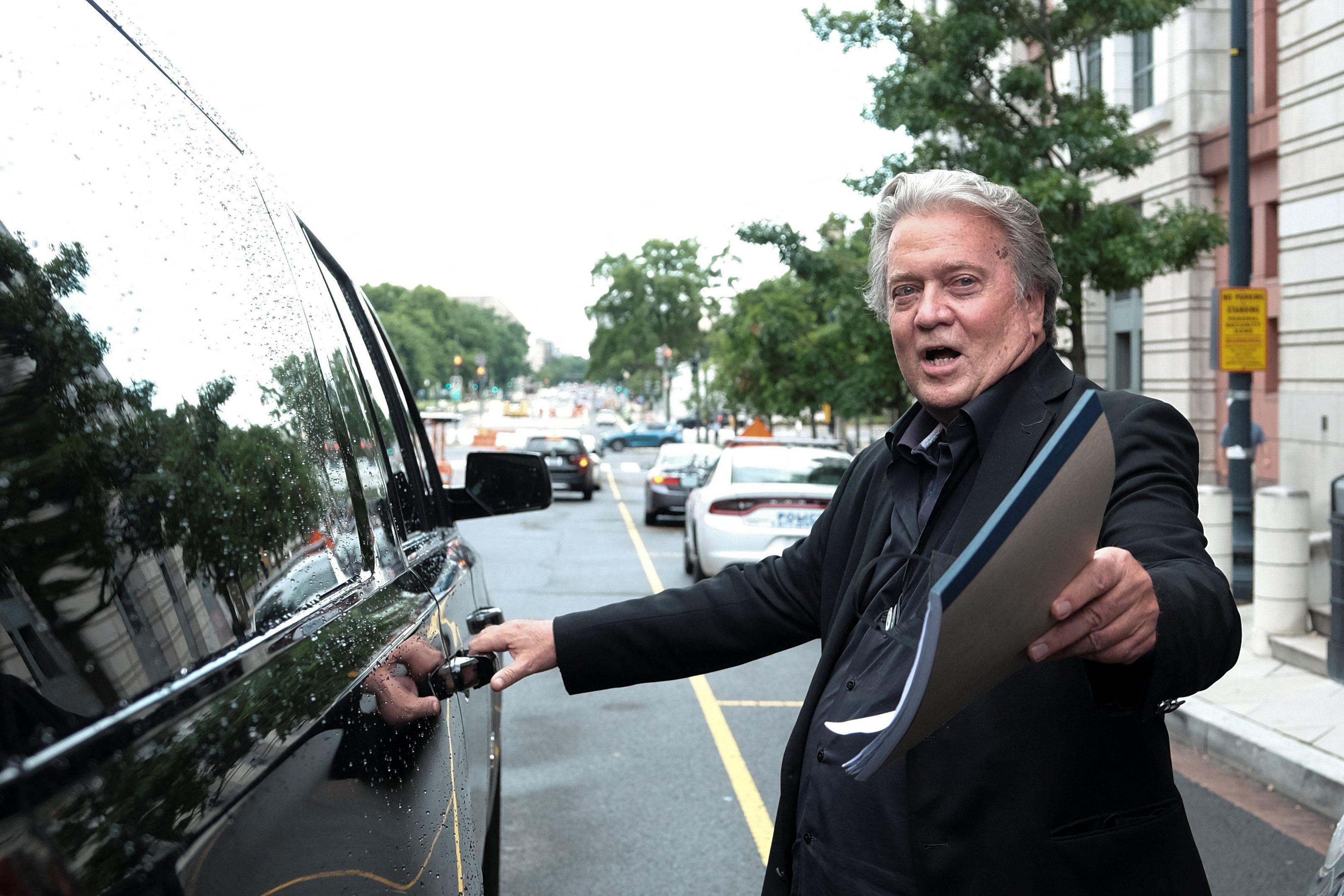On Tuesday, Steve Bannon’s trial for contempt of Congress got underway with a jury seated and opening arguments heard. It might have been expected that the trial—which could result in a year in prison for one of the most deplorable figures of the Trump White House years—would be garnering more attention than it has. Bannon was the face of the white nationalist movement in the Trump White House. Shouldn’t him going on trial be a bigger deal?
The truth is: He’s not on trial for that. This is an open-and-shut case, in which Bannon is accused of violating law 2 U.S.C. § 192, the one that makes it a crime to “willfully … default” on a Congressional subpoena by failing to appear before Congress. It is punishable by a fine and a sentence of between one month and 12 months in prison.
Congress subpoenaed Bannon. The Jan. 6 House committee wanted him to testify about his knowledge of the events of Jan. 6. Bannon didn’t show up. Case, pretty much closed.
“The law here is absolutely plain … there couldn’t be anything plainer,” former prosecutor Frank Bowman told me last October when Bannon was first being investigated by the Department of Justice for violating the requirement to at least show up for subpoenaed testimony.
And as former Deputy Attorney General Donald Ayer told me at the time, “if you get subpoenaed, you don’t get to just not show up because you don’t want to show up.”
That’s exactly what Bannon tried to do.
This is such a straightforward case, in fact, that it was reported prior to the trial that the prosecution may put on less than a full day’s worth of testimony before closing its case.
But what about Bannon’s possible defenses for refusing to show up to testify? Wasn’t he responding to an executive privilege claim by the former president in making his decision?
That was his claim, at least, but it was always on shaky ground because the current president, Joe Biden, has renounced any executive privilege claims over the requested testimony and materials from Bannon and others, and the Supreme Court has sided with Biden’s Department of Justice in other similar cases. And at this trial, the “executive privilege” defense has already been disallowed by the Judge Carl J. Nichols, a Trump appointee, because Bannon’s defense team failed to produce preliminary evidence that Trump had actually ever asked Bannon not to testify, or even that Trump had sought to invoke executive privilege over Bannon’s testimony.
Indeed, Bannon’s possible avenues of defense have been so narrowed by the judge that the conservative National Review is calling the case against Bannon “airtight” and saying “Bannon has no real defense against the misdemeanor contempt-of-Congress charges.” Bannon’s remaining defense basically amounts to arguing that he didn’t understand that the deadline to meet the requirements of the subpoena was the actual deadline. Stuff of Perry Mason mysteries this is not!
Further, Bannon can’t plea bargain his way out of this mess. A 2 U.S.C. § 192 prosecution runs on a completely separate track from negotiations over Congressional testimony, so even if he were to comply with the subpoena now—as he has feigned at doing in recent weeks—that would not change the case against him in anyway and it would do nothing to stop the trial that is already underway. So, this trial will not result in Bannon spilling his Trump secrets in testimony in exchange for some sweetheart deal to get himself off the hook.
It’s worth noting that if Bannon had gone on trial for fraud for his work on the alleged “We Build the Wall” fundraising scheme—remember that?—the case would have likely been more interesting, but Bannon was pardoned by Trump in the waning days if his administration.
All of this is to say: The only interesting question here is whether the jury reaches the obvious verdict of guilty—and if Bannon will face a maximum punishment of one year in prison, or something closer to the minimum of one month. Until we get to that phase of the trial, you can feel pretty good about ignoring it.
